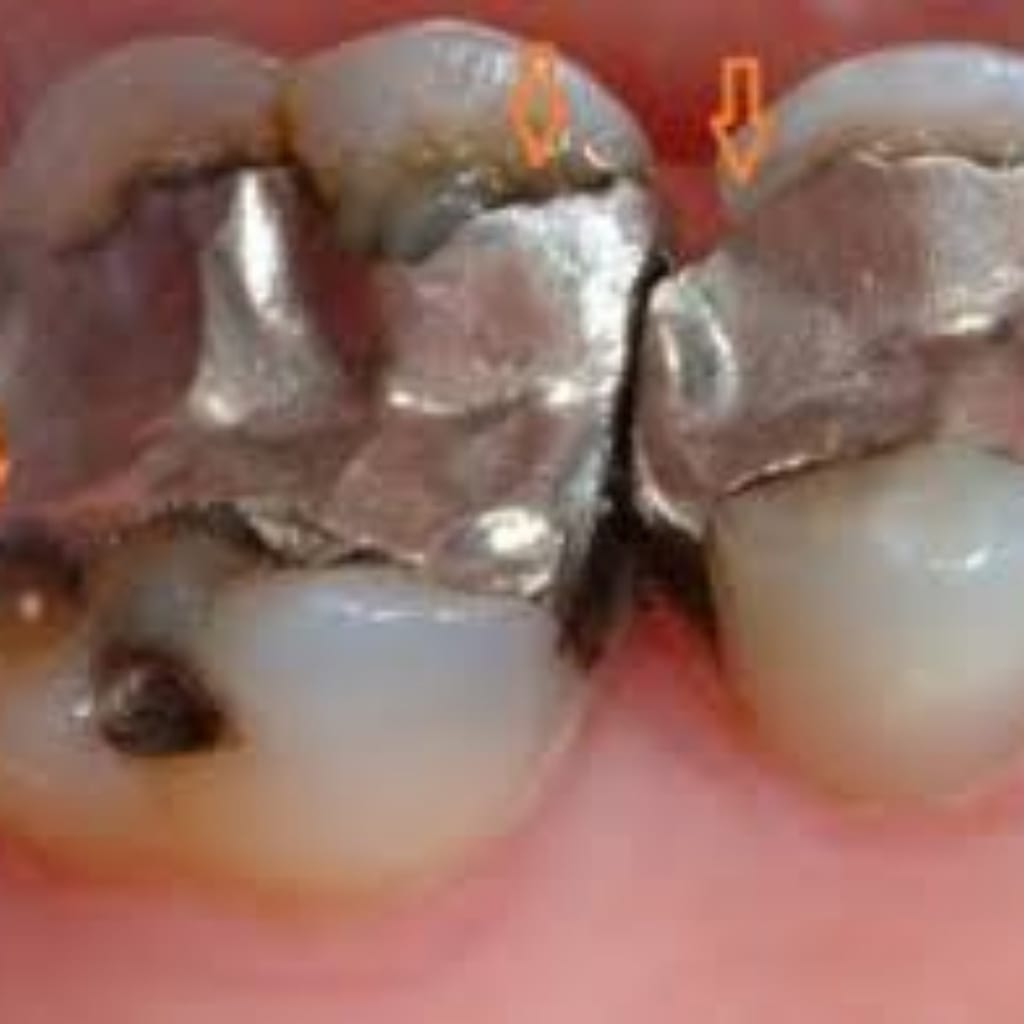it normal for my tooth to hurt after a filling?
Dentist

Is it normal for my tooth
Is it normal for my tooth to hurt after a filling?
Dental fillings are a common dental procedure used to restore teeth that have been affected by decay or damage. While the process itself is relatively straightforward, it's not uncommon for some patients to experience tooth sensitivity or discomfort after getting a filling. This post-filling toothache can be a cause for concern, but it's important to understand that it is often a normal part of the healing process. In this article, we will explore the reasons why your tooth may hurt after a filling and what you can do to alleviate the pain.
1. Dental fillings and their purpose:
Before we delve into the potential causes of post-filling tooth pain, let's briefly discuss dental fillings and their purpose. Fillings are used to repair teeth that have been damaged by cavities or fractures, restoring their function and preventing further decay. During the procedure, the dentist removes the decayed or damaged portion of the tooth and fills the resulting cavity with a dental material, usually composite resin, amalgam, or porcelain.
2. Immediate post-filling discomfort:
After the dental filling procedure, it's not uncommon to experience some immediate sensitivity or discomfort. This can occur due to a variety of factors:
a. Anesthesia wearing off: The local anesthesia used during the filling process may take a few hours to wear off completely. As it fades, you might start feeling sensitivity or mild pain around the treated tooth.
b. Tissue inflammation: The dental procedure itself can cause inflammation in the surrounding gum tissue, leading to sensitivity or discomfort.
c. Nerve irritation: The process of removing decay or preparing the tooth for the filling can sometimes irritate the tooth's nerves, resulting in temporary sensitivity.
These immediate post-filling discomforts are generally short-lived and tend to subside within a few hours or days. However, if the pain persists or worsens, it may indicate a more significant issue.
3. Common causes of prolonged post-filling tooth pain:
a. Bite adjustment: If your bite feels uneven after the filling, it could lead to excessive pressure on the treated tooth, causing pain. Your dentist may need to adjust the filling to ensure proper alignment and alleviate the discomfort.
b. Pulpitis: Sometimes, deep cavities or trauma can result in pulpitis, which is inflammation of the dental pulp. Pulpitis can cause persistent pain after a filling and may require additional treatment, such as a root canal, to address the underlying issue.
c. Cracked tooth: In some cases, a tooth may have an undetected crack or fracture that becomes more evident after the filling. If this is the case, your dentist may need to evaluate the tooth further and recommend appropriate treatment to prevent further damage.
d. High filling: If the filling is slightly too high, it can cause excessive pressure on the tooth during biting or chewing. This can lead to discomfort and pain. A simple adjustment by your dentist can resolve this issue.
4. Managing post-filling tooth pain:
If you experience discomfort after a dental filling, there are several steps you can take to manage the pain:
a. Over-the-counter pain relievers: Non-prescription pain relievers like ibuprofen or acetaminophen can help reduce mild to moderate tooth pain. Follow the recommended dosage instructions and consult with your dentist or pharmacist if you have any concerns.
b. Sensitivity toothpaste: Using a toothpaste formulated for sensitive teeth can help alleviate post-filling sensitivity. These toothpastes contain desensitizing agents that block pain signals.
c. Avoiding certain foods: Some foods and beverages, particularly hot, cold, or sugary items, can trigger tooth sensitivity or pain. Temporarily avoiding these foods can help alleviate discomfort.
d. Good oral hygiene: Maintaining good oral a filling?
Dental fillings are a common dental procedure used to restore teeth that have been affected by decay or damage. While the process itself is relatively straightforward, it's not uncommon for some patients to experience tooth sensitivity or discomfort after getting a filling. This post-filling toothache can be a cause for concern, but it's important to understand that it is often a normal part of the healing process. In this article, we will explore the reasons why your tooth may hurt after a filling and what you can do to alleviate the pain.
1. Dental fillings and their purpose:
Before we delve into the potential causes of post-filling tooth pain, let's briefly discuss dental fillings and their purpose. Fillings are used to repair teeth that have been damaged by cavities or fractures, restoring their function and preventing further decay. During the procedure, the dentist removes the decayed or damaged portion of the tooth and fills the resulting cavity with a dental material, usually composite resin, amalgam, or porcelain.
2. Immediate post-filling discomfort:
After the dental filling procedure, it's not uncommon to experience some immediate sensitivity or discomfort. This can occur due to a variety of factors:
a. Anesthesia wearing off: The local anesthesia used during the filling process may take a few hours to wear off completely. As it fades, you might start feeling sensitivity or mild pain around the treated tooth.
b. Tissue inflammation: The dental procedure itself can cause inflammation in the surrounding gum tissue, leading to sensitivity or discomfort.
c. Nerve irritation: The process of removing decay or preparing the tooth for the filling can sometimes irritate the tooth's nerves, resulting in temporary sensitivity.
These immediate post-filling discomforts are generally short-lived and tend to subside within a few hours or days. However, if the pain persists or worsens, it may indicate a more significant issue.
3. Common causes of prolonged post-filling tooth pain:
a. Bite adjustment: If your bite feels uneven after the filling, it could lead to excessive pressure on the treated tooth, causing pain. Your dentist may need to adjust the filling to ensure proper alignment and alleviate the discomfort.
b. Pulpitis: Sometimes, deep cavities or trauma can result in pulpitis, which is inflammation of the dental pulp. Pulpitis can cause persistent pain after a filling and may require additional treatment, such as a root canal, to address the underlying issue.
c. Cracked tooth: In some cases, a tooth may have an undetected crack or fracture that becomes more evident after the filling. If this is the case, your dentist may need to evaluate the tooth further and recommend appropriate treatment to prevent further damage.
d. High filling: If the filling is slightly too high, it can cause excessive pressure on the tooth during biting or chewing. This can lead to discomfort and pain. A simple adjustment by your dentist can resolve this issue.
4. Managing post-filling tooth pain:
If you experience discomfort after a dental filling, there are several steps you can take to manage the pain:
a. Over-the-counter pain relievers: Non-prescription pain relievers like ibuprofen or acetaminophen can help reduce mild to moderate tooth pain. Follow the recommended dosage instructions and consult with your dentist or pharmacist if you have any concerns.
b. Sensitivity toothpaste: Using a toothpaste formulated for sensitive teeth can help alleviate post-filling sensitivity. These toothpastes contain desensitizing agents that block pain signals.
c. Avoiding certain foods: Some foods and beverages, particularly hot, cold, or sugary items, can trigger tooth sensitivity or pain. Temporarily avoiding these foods can help alleviate discomfort.
d. Good oral hygiene: Maintaining good oral





Comments
There are no comments for this story
Be the first to respond and start the conversation.